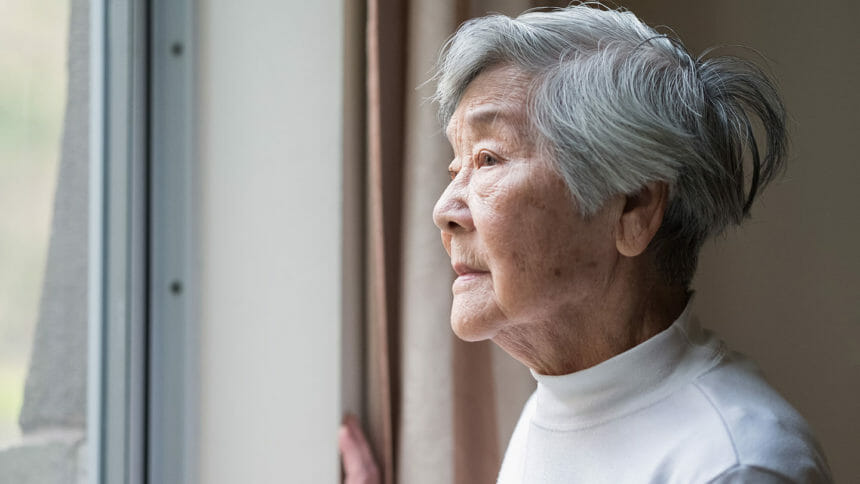
Pay attention to older people who don’t get a lot of visitors. The lack of interaction from family and friends is linked to a higher risk for dying, according to a study published in BMC Medicine on Thursday.
Authors of the study want to see clinicians use their research to improve the way people at risk are identified. Previous research has shown that there are links between any-cause death along with loneliness and living alone. The researchers utilized UK Biobank data from 458,146 adults to get a better idea of social interaction, or lack of it, and how it relates to death risk.
Participants in the study were recruited from 2006 to 2011 and had a mean age of 56.5 years. The people responded to questions about five different types of social interactions: how often they confided in someone close to them, how often they felt lonely, how often family and friends visited, how often they took part in social activities, and whether or not they lived alone. There was a median 12.6-year follow-up period. During that time, 33,135 of the people died.
Every type of social interaction the researchers asked the people about was linked with dying from any cause. The increased death rate was more solidly linked with low levels of the objective measures of social interaction (living alone) compared to low levels of the subjective measures (how often they felt lonely). Never being visited by friends or family members was associated with a 39% increased risk for death.
The researchers didn’t see the benefit of participating in weekly group activities among people without visitors; people who didn’t get visitors but joined group activities had a comparable associated increased risk of death to those who had no visits and joined no activities (50% and 49% respectively). When people got visitors at least on a monthly basis, they had a lower risk for death, which shows there could be a protective effect from the socialization.





